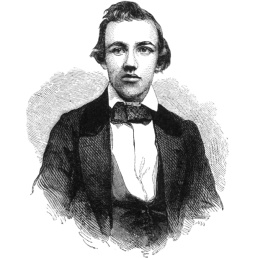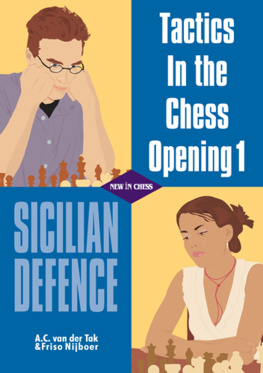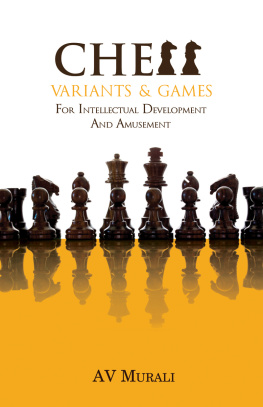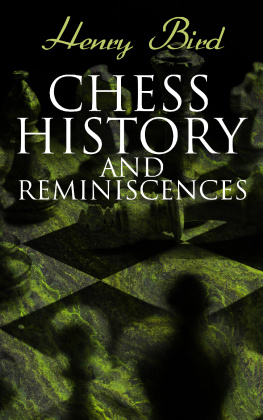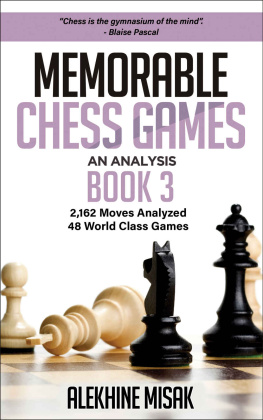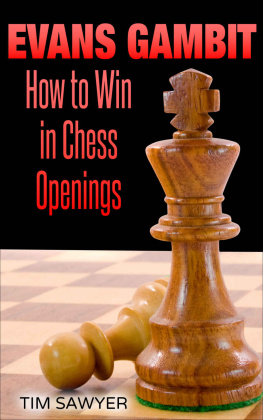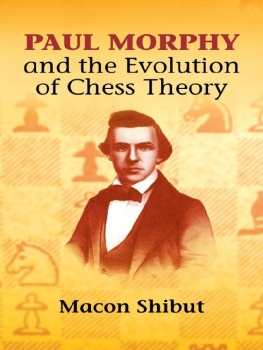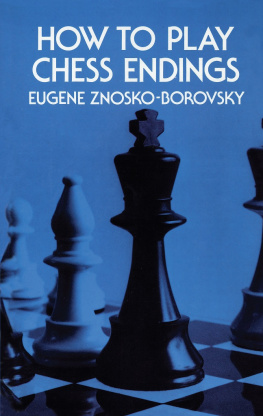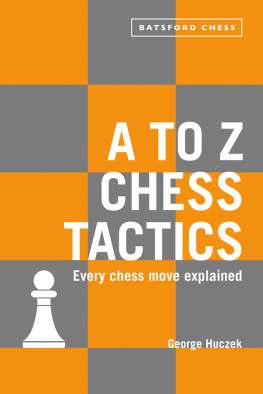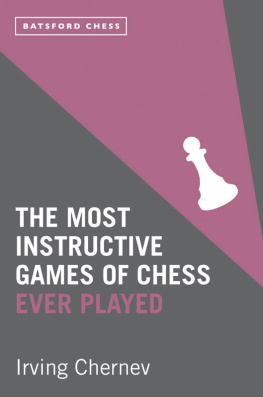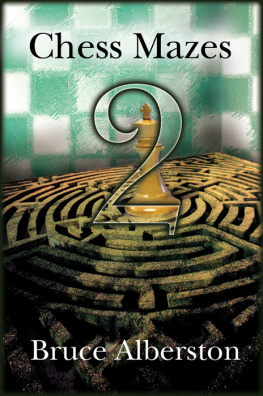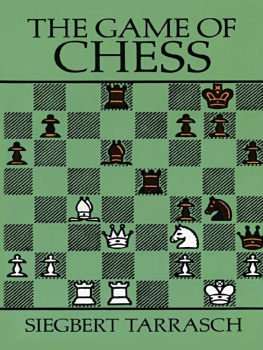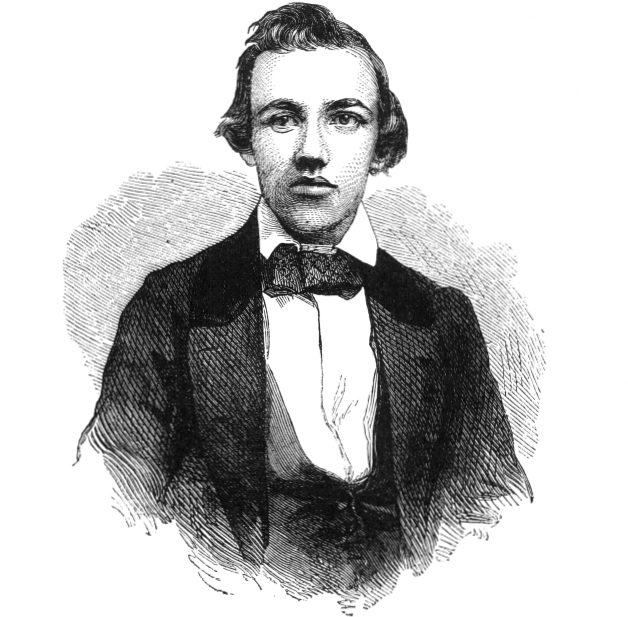
PAUL MORPHY, THE CHESS CHAMPION.
MORPHYS
GAMES OF CHESS
300 games by the greatest chess player of all time, selected and annotated by
PHILIP W. SERGEANT
with a new introduction by
FRED REINFELD
Dover Publications, Inc.
New York
Copyright 1957 by Dover Publications, Inc.
All rights reserved.
This new Dover edition, first published in 1957, is an unabridged and unaltered republication of the last revision, with the addition of a new introduction by Fred Reinfeld. It is published through special arrangement with G. Bell & Sons, Ltd.
International Standard Book Number eISBN 13: 978-0-486-14527-3
Manufactured in the United States by Courier Corporation
20386718
www.doverpublications.com
INTRODUCTION
It is a truism, familiar to most chessplayers, that chess theory has made greater advances in the past hundred years than in the previous thousand, and it is to Paul Morphy that we owe the impetus for this magnificent progress.
Just how Morphy accomplished what he did is not easy to explain. Do great men make history, or does history make great men? Did Morphy impart his doctrines to his contemporaries, or did he merely systematize ideas that were part of the intellectual climate of the chess world of his day? And just how did he preach his ideashow did he convince the ignorant and open the eyes of the blind?
Morphy wrote no book; he never expounded his chess theories publicly, aside from a chess column he edited in a New York newspaper for about a year. His ideas and guiding theories are imbedded in his games. Over the years, six large-scale collections of his games have been published. These extremely popular works have made Morphys games available to a large number of players.
Morphys games are so insidiously attractive that they make powerful propaganda for Morphys theoriestheories, I repeat, that were never stated by Morphy but are implicit in his games.
Morphy believed, above all, in developing his pieces rapidly. This was a conscious policy, and no mere accident. While his opponents often crassly neglect development, or allow themselves to be capriciously deflected from the goal of full development, Morphy never neglects this vital principle: Develop quickly and efficiently!
All credit to Morphy for this important emphasis. But the chess world was in any event moving slowly to a recognition of the value of development. The systematic study of chess in the modern sense really started with the great Frenchman Philidor in the latter half of the eighteenth century. As technique gradually sharpened and theoretical understanding broadened, the best chess minds groped laboriously for a fundamental concept of the game. Morphy supplied that concept: Development!
The lesson is clear in Morphys games. Particularly when we play over his games with weak players do we see how he invariably and effortlessly hammered away at obtaining an advantage in development. Of course, in these games the opening of attacking lines goes hand in hand with rapid development.
Enough of abstractions. Take a concrete examplethe game with Lewis (CXXXVI, p. 200). While Black voluntarily submits to a cramped game with his timid opening moves, Morphy develops quickly. At the same time, he stresses from the very start his intention of opening the King Bishop file. (He gives us a clear hint with the unorthodox 4 Kt-KR3, played to make room for P-KB4 followed by P-B5.)
Notice how calmly, clearly, elegantly Morphy brings one piece after another to the attack, always increasing the pressure. Having opened the King Bishop file, he places his Rooks on it. Then he uses the open file as a steppingstone to the King Knight file and attacks on that file too. Finally we have a neat, pleasing conclusive attackall thanks to the carefully planned development that preceded it.
This was a blindfold game, which makes Morphys achievement all the more impressive. In another blindfold game against an amateur (XCVIII, p. 170), Morphy reaches even greater heights. Aside from the beauty of the play, this game is significant because it is an Evans Gambitthat favorite opening of Morphys in which White sacrifices a Pawn on spec in order to gain time to obtain a dashing development and a formidable Pawn center.
Here again we see Morphys grand technique of combined operationsquick, forceful development and the opening of lines. Look at the diagram after Blacks twenty-first move. White has all his pieces actively developed. Blacks forces are passive, some of them undeveloped. White has the open linesopen King file, open long diagonal. No wonder Morphy is able to bring off a combination as electrifying as the crashing chords of a Beethoven sonata.
This is the great lesson Morphy teaches us untiringly: Develop your pieces; create open lines; operate on the open lines with your more actively posted pieces until you have crushed the enemy to a pulp and hounded his King into oblivion.
Morphy was generally a brilliant player, and for more than one reason. His flair for the game was such that he had a natural preference for the colorful, elegant conclusion. But it was not only a matter of temperament. A big lead in development, quantitative and qualitative, automatically produces situations in which brilliant attack is the order of the day.
But in chess there are times when one cannot be brilliant, even though forceful moves are available. And of this art toohow to be forceful without being brilliantMorphy was a past master. The last game of the match with Lowenthal (XXXIII, p. 81) is a good example. Here Morphy pushes his advantage in terrain with simple, logical, forcing moves until Black gasps for air. Such games, as Morphy plays them, have a genuine aesthetic appeal even though the fanfare of easy brilliancy is absent.
In fact, the incessant din about Morphys brilliant combinations has blinded many to the superb skill he displays in the end game. The third match game with Harrwitz (XLIII, p. 94) shows Morphys end-game virtuosity in the most favorable light. The way he creates a passed Pawn and uses it to tie up Whites pieces makes it clear that Morphy was a thorough master of the fine points of end-game play.
Again, in Game CXVI (p. 185) against Seguin, Morphy spies the weakness of Blacks Queen Bishop Pawn and, in a series of well thought out moves, forces its downfall. This game is all the more remarkable since it was played in a blindfold exhibition and we might expect Morphy to strive for brilliancy at all cost.
Still another facet of Morphys genius that compels our admiration is the beauty of his blindfold play. In these games against weak opponents he allows his combinative genius full scope and produces many fireworks effects.
Even after the most critical examination we must admit the many-sided genius of Morphys play. Yet he was not a god, and if we are to appraise him with ruthless candor, we must admit that there are flaws in his play too. This may be a calculated affront to what might be styled the bobby-sox school of chess critics, in whose eyes Morphy can do no wrong. But, by honestly enumerating these flaws, we will come to a better understanding of Morphys genius and of master play in general.
In the first place, some of Morphys games are downright dullsome, but not many. When we come to these dreary games, we must remember that the chess master, unlike other great artists, has to produce on schedule, whether he is in the mood or not. There are days when even the most outstanding geniuses are unable to give of their best. It is the chess masters misfortune that these occasionally mediocre efforts are recorded and may turn up in future years to plague him and embarrass him. As far as Morphy is concerned, his occasionally dreary games allow his characteristic masterpieces to shine with an even more brilliant luster.
Next page
